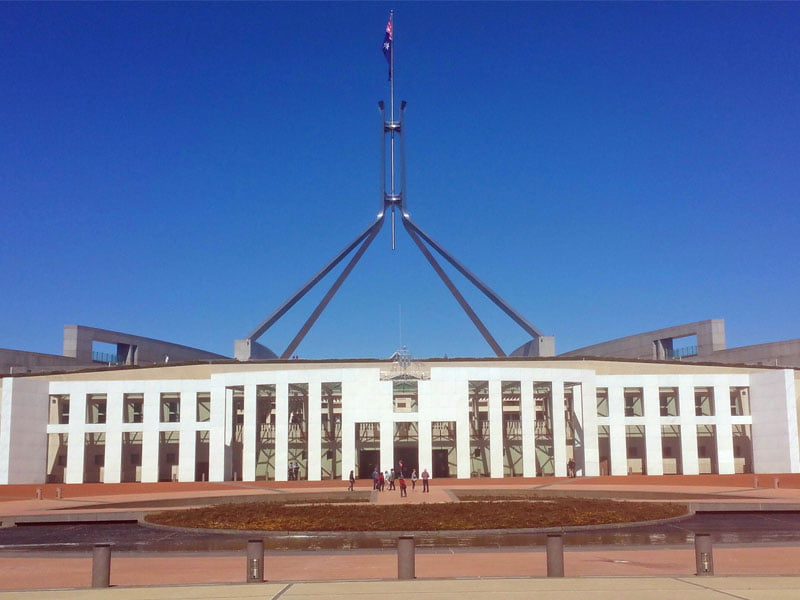Shadow innovation minister Kim Carr has gone on the attack over the government’s response to the ISA 2030 report, accusing the Coalition of “budget fraud” over its changes to the R&D tax incentive scheme.
At a fiery senate estimates hearing on Thursday morning, senator Carr slammed the government for not supporting some of the core recommendations that emerged from Innovation and Science Australia’s 2030 report, labelling it an example of the government’s “masterly inactivity” on innovation since the 2016 election.
The shadow minister’s attacks were continually rejected by embattled innovation minister Michaelia Cash.

The federal government quietly released its response to the ISA 2030 report last week, providing full support to 17 out of 30 recommendations, and in principle support to another 10. But it was the recommendations that were merely noted by the government that raised eyebrows and disappointed the ISA board.
The government only “noted” one of the central pillars of the report: that savings from the restructure of the R&D tax incentive, which was revealed in this month’s budget, would be used to increase direct grants.
ISA also wanted the government to commit to ensuring funding for research, science and innovation not fall below the medium-term average of 0.64 per cent, and that a collaboration premium of up to 20 per cent on the non-refundable tax offset aiming to encourage businesses to do more R&D and work with public institutions be introduced.
These recommendations were noted by the government but have received no support.
Senator Carr has now accused the government of pocketing the $2.4 billion in savings from the R&D changes and not reinvesting it in the innovation sector.
“This is a budget fraud, an election stunt where key recommendations of your innovation report have only been noted and not acted upon,” Senator Carr said during the estimates hearing.
“What the chief scientist has told this committee and the head of the ISA board has said that these measures were a package.
“The funding for the collaboration premium were to come out of these various savings measures. That’s what he’s said repeatedly,” he said.
“Why has the government accepted the $2.4 billion worth of cuts to the R&D budget over the forward estimates but not introduced the main initiative which was the 20 percent collaboration premium?”
This assertion was “completely rejected” by Senator Cash.
“The report is just that: a report, and it provides recommendations to government. The government accepted or accepted in principle 27 out of 30 recommendations. We did not reject any of them,” Senator Cash said.
“You need to look at the totality of the report – you don’t look at the recommendations in isolation. Recommendation six actually deals with the government’s response to R&D,” she said.
“The policy put forward by the Three Fs review and ISA 2030 was a very, very tough policy that would’ve [seen] many, many companies in Australia actually getting nothing.”
“The government has adopted a far more generous approach in terms of changes to the R&D scheme as put forward by the Three Fs review and ISA 2030.
“The government is committed to directing support for greater levels of industry and research collaboration and we have done it in different ways.”
Industry department deputy secretary Mike Lawson added that the recommendation emerging from the Three Fs report for a threshold trigger of between 1 and 2 per cent would have locked out a number of Australian companies out of the R&D scheme.
“If the government had adopted that there would have been the implication of closing out a number of companies. With the program that was adopted, a tiered threshold depending on intensity and there’s incentives for the company to do more,” Mr Lawson said.
“The reforms to R&D are likely to encourage and increase R&D investment by Australian companies.”
But Senator Carr wasn’t buying it.
“That’s a lot of words, but the government noted the key recommendation but did not act on it,” he replied.
The government pointed to the budget’s allocation of $1.9 billion for research infrastructure investment as evidence of its support for the innovation sector, but this was criticised by Senator Carr for not being included in the forward estimates.
“You’ve taken $2.4 billion out over four years and put $150 million back in,” he said.
Later during the senate estimates hearing, Innovation and Science Australia CEO Charlie Day reaffirmed the body’s commitment to continue lobbying the government on the issues in the 2030 report.
“The government’s response to our report noted those recommendations, it did not reject those recommendations. To me noted means there’s room for further conversation and I would expect the board would continue to maintain a dialogue with government on this,” Dr Day said.
“We continue as a board to believe that collaboration with business and universities should be a high priority. The board still believes that more can be done and should be done, and we’ll continue to make the case.”
Senator Carr quickly poured cold water on Dr Day’s interpretation of “noted”.
“In government terms noted means they’re not taking any further action,” Senator Carr said.
Do you know more? Contact James Riley via Email.

